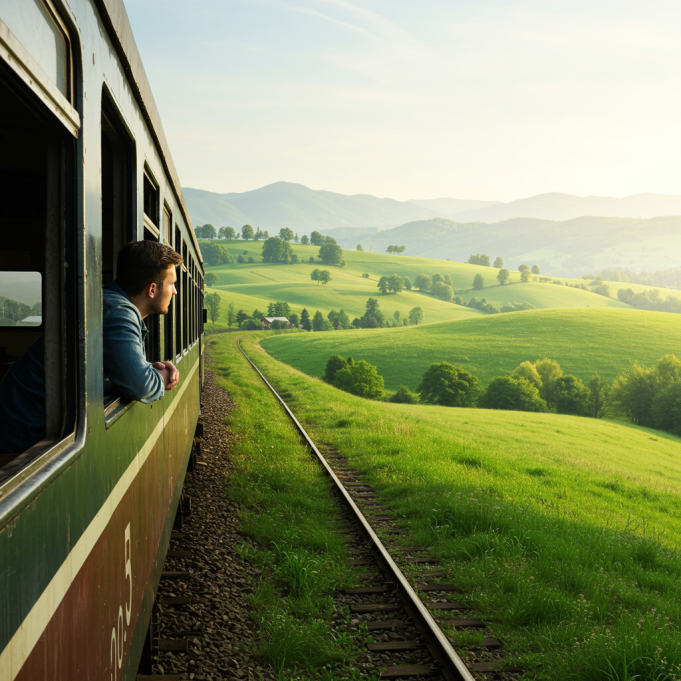Slow Travel Unlocked: The Ultimate Guide to Deep-Dive, Responsible Journeys
In an age of rapid transit and ever-speeding itineraries, slow travel offers an antidote: a transformational approach that values depth of experience over checklist sightseeing. Embracing responsible travel habits, you’ll immerse yourself in local culture, reduce environmental footprint, and forge genuine connections with people and places. Whether you’re planning a weeks-long exploration or a multi-month sabbatical, this guide equips you with strategies, tips, and real-world insights to master the art of slow travel.
1. Planning Your Slow Travel Journey
A successful slow travel itinerary begins long before departure. Follow these steps:
- Define Your Travel Tempo: Decide if you’ll spend a week, a month, or longer in each destination, focusing on quality over quantity.
- Research Authentic Experiences: Use travel blogs, local tour operators, and community forums to uncover hidden gems rather than tourist traps.
- Create a Flexible Itinerary: Block out large regions (e.g., Andalusia, Tuscany, or Bali) and allocate time per town or village, allowing for spontaneous detours.
- Set a Realistic Budget: Calculate daily living costs including accommodations, meals, transport, and an emergency fund for unexpected adventures.
2. Choosing Accommodations That Connect
Where you stay profoundly shapes your travel narrative. Consider these options:
- Homestays & Guesthouses: Live with local hosts, share meals, and learn customs firsthand.
- Eco-Lodges & Agritourism: Support sustainable projects, organic farming, and off-grid retreats that prioritize nature conservation.
- House & Pet Sitting: Exchange care for homes (and furry friends) in return for free lodging, offering intimate neighborhood immersion.
- Long-Stay Rentals: Apartments or studios rented by the month foster routine—shop at markets, cook local dishes, and feel at home.
3. Engaging with Local Communities
To truly travel slowly, cultivate meaningful relationships:
- Learn Basic Phrases: Even a few words in the local language signal respect and open hearts.
- Attend Community Events: Festivals, markets, and workshops are gateways to authentic cultural exchange.
- Volunteer Consciously: Contribute skills—teaching English, helping on organic farms, or assisting at wildlife sanctuaries—while ensuring projects are ethical and locally led.
- Support Small Businesses: Dine at family-run eateries, buy crafts directly from artisans, and book local guides whose livelihoods depend on respectful tourism.
4. Practicing Sustainable Travel Habits
Responsible adventurers understand that every choice matters:
- Pack Light: A streamlined bag reduces transport emissions and frees you to navigate public transit.
- Choose Low-Impact Transport: Trains, buses, bicycles, and shared rides minimize carbon footprint compared to private flights.
- Avoid Single-Use Plastics: Carry a reusable bottle, bamboo utensils, and cloth shopping bags.
- Offset Carbon: When flights are unavoidable, invest in reputable carbon offset programs supporting reforestation or clean energy initiatives.
5. Curating Unforgettable Itineraries
Slow travel thrives on depth, not breadth. Sample itineraries might include:
- Mediterranean Olive Trail: Explore Sicily’s hilltop villages for two weeks—olive harvests, cooking classes, and agriturismo stays.
- Japanese Ryokan Retreat: Spend a month rotating through hot-spring towns on the Tohoku coast, mastering calligraphy and forest bathing.
- Andean Community Immersion: Live with Quechua families near Cusco for three weeks, learning weaving crafts and sustainable farming.
6. Money & Budgeting Tips
Slow travel often results in lower daily spends compared to whirlwind tours. Keep finances in check by:
- Choosing Shared Accommodations: Dorms, co-living spaces, or joint rentals split costs.
- Cooking at Home: Shopping at local markets not only saves money but supports vendors.
- Taking Public Transit Passes: Monthly or regional passes reduce per-ride fares.
- Negotiating Rates for Long Stays: Landlords often discount weekly or monthly rentals.
7. The Digital Detox Advantage
While connectivity has perks, intentionally unplugging amplifies presence:
- Establish Boundaries: Designate tech-free hours for hiking, journaling, or conversation.
- Use Offline Maps & Guides: Download resources in advance to eliminate constant roaming charges and distractions.
- Practice Mindful Photography: Capture moments thoughtfully rather than scrolling feeds.
8. Packing Essentials for the Slow Traveler
Pack versatile, eco-friendly gear to keep your load light:
- Quick-Dry Clothing & Merino Wool Layers
- Compact Reusable Water Bottle & Utensil Kit
- Solar or Crank Phone Charger
- Collapsible Daypack & Travel Towel
- Minimalist First Aid & Repair Kit
9. Overcoming Common Slow Travel Challenges
No journey is without hurdles. Prepare for:
- Language Barriers: Use translation apps but prioritize phrasebooks to deepen learning.
- Homesickness: Plan occasional video calls, keep mementos, and establish travel routines.
- Logistical Delays: Build buffer days into your schedule to accommodate missed connections or weather disruptions.
10. Final Thoughts & Next Steps
Slow travel transforms the way you see the world and yourself. By pacing your journey, embedding yourself in local life, and adopting sustainable practices, you’ll return home with more than photos—you’ll return changed. Start planning today: choose your destination, draft a flexible itinerary, and commit to traveling with intention.
Frequently Asked Questions (FAQs)
- Q: Is slow travel more expensive?
A: Often it can be cheaper per day due to fewer flights and more local stays, but budget carefully. - Q: How do I find reliable homestays?
A: Look for hosts with verified reviews on trusted platforms, or seek referrals through travel communities. - Q: Can I work remotely while slow traveling?
A: Yes—balance work hours with exploration, confirm stable internet before booking, and respect local time zones. - Q: How do I measure my environmental impact?
A: Track transport distances, offset unavoidable emissions, and choose eco-certified accommodations.
Embark on your slow travel adventure with patience, curiosity, and respect. The world has infinite stories—take the time to live a few.








